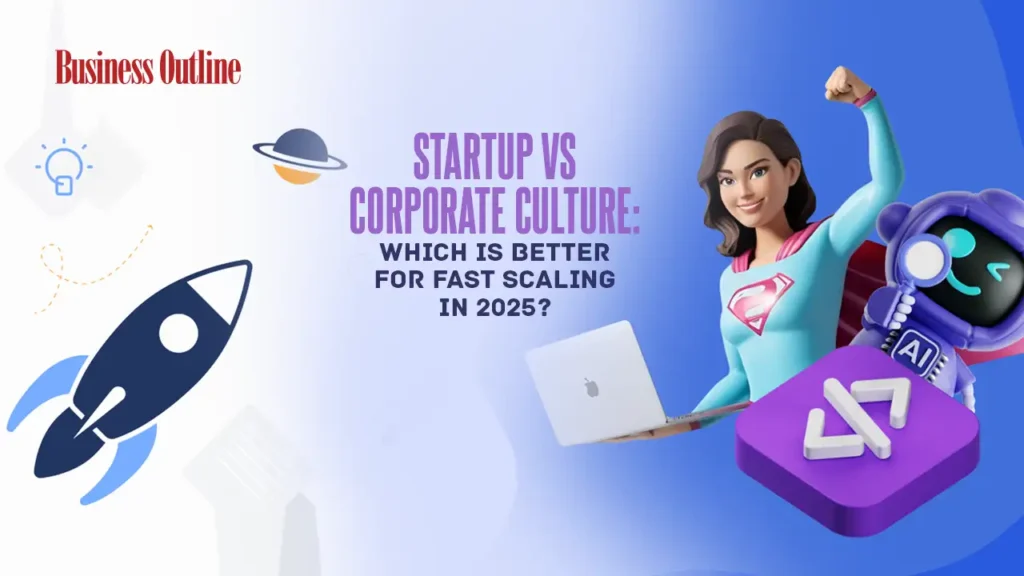Businesses grow. Ideas grow. Time throws challenges. Technologies change. Some businesses adapt. Many fade away. A few small start-ups boom. A few big giants struggle. Many thrive. Many die. It all boils down to adaptability and the power to bounce back.
2025 has given a glimpse of what’s coming with AI. There is a strong debate that AI will take away jobs. Others say it will create many new jobs. This offers a brand new perspective for many new generation entrepreneurs. It also benefits and strengthens stable corporate industries. The truth is, the path has both challenges and opportunities. Let us break it down.
Why Startup Culture Helps in Scaling
Startups offer speed and flexibility. They offer ideas and growth. This is possible because startups are not roadblocked by hierarchies and rule books. Decision making is easier. One person manages different roles. A marketing manager also plays a role of customer support. A researcher is also a board of director. This is perfect for industries like AI, green energy or fintech.
If there’s a product to test run, there is less hesitation of failing. The goodwill is not at major stake so the fear of failing is lost. There’s much accountability, and ownership of the process and the outcome. From a scaling point of view, this offers wings to any start-up. They can grab opportunities faster before the competition notices and makes plans.
But the catch is that after scaling to a certain level, there is a lot to plan, implement and achieve. There’s limited money but new hires are required to manage workload. There’s a risk of employee burnout. That is one big reason, many startups struggle to move from a small team to bigger organisations.
Why Corporate Culture Helps in Scaling
Corporates are opposites. They have large capital. Their market strength is huge. They have proven themselves to the customers. They are trusted. They have a separate team to learn, adapt and transfer new technologies to the employees. In 2025, many big corporate houses have embraced AI to its functioning. A big advantage with corporate houses are that despite changes, they offer stability. That is their strength.
On the hindsight, they go by the rule book. They run on structure and hierarchy. So to test, run a product, and come to a decision can sometimes be slow. If customers need a change quickly, corporates may find it hard to keep up.
From a scaling point of view, Corporates have a super power to reach millions of stores. They can launch a new product which is instantly available all over the globe. This is something that start-ups can only imagine.
The Smart Move: Blending Both
In reality, both corporates and start-ups are adapting and embracing a culture from one another. Many big companies are creating labs for experimenting, learning, failing and succeeding. Thus there is a freedom to innovate, adapt and grow. Similarly, startups are adapting corporate culture for better reporting, planning and compliance. This helps them to scale smoothly.
Final Thoughts
So, which is better for fast scaling in 2025: startup or corporate culture? The answer is that the future belongs to those that offer innovation, reliability, and are adaptable. The one that scales responsibly is the one that grows.
Read more: Top Business Magazine


